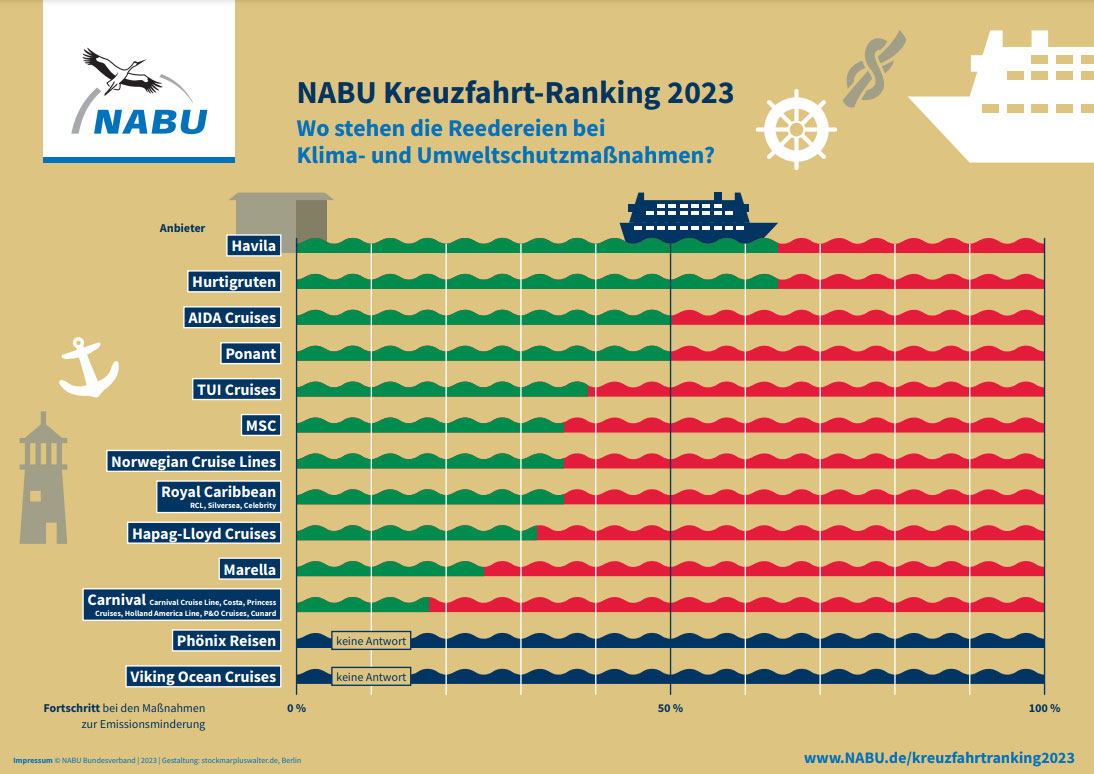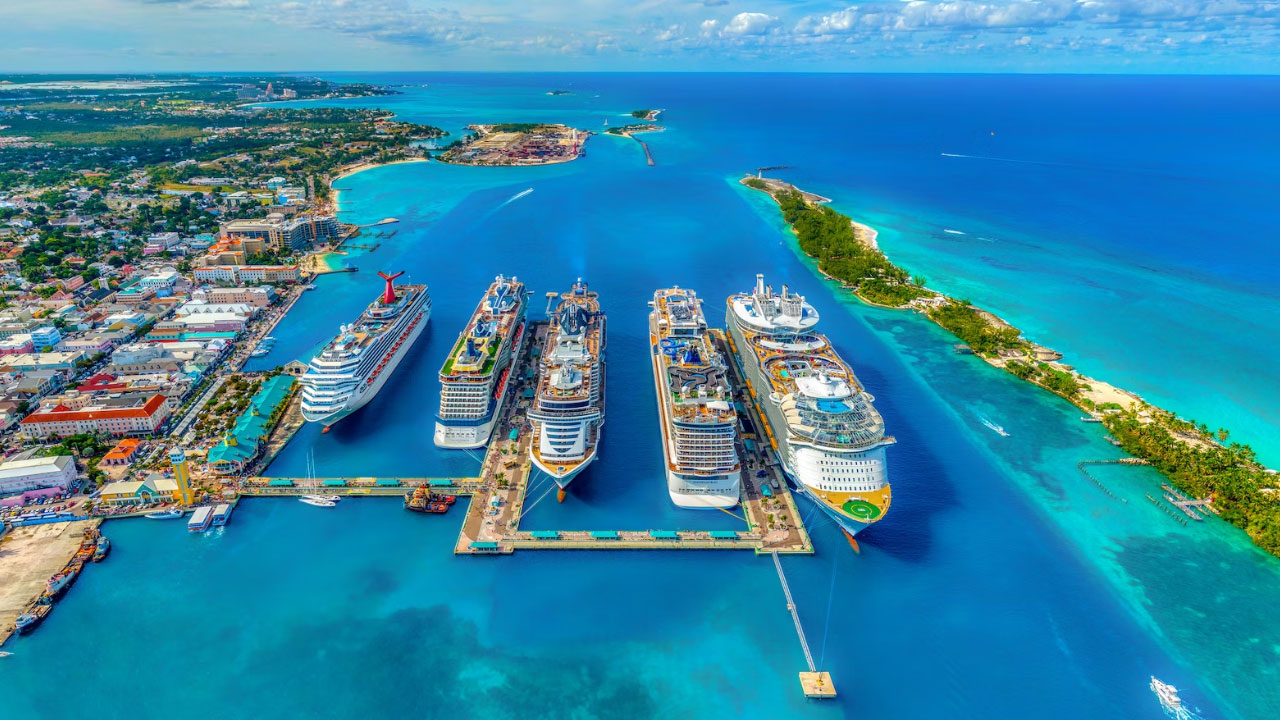German Nature Conservation Society: Cruise Ship Ranking 2023
The cruise ship industry is still a long way from a cruise without harm to the environment. Providers of smaller cruise ships in particular are making progress in terms of climate and environmental protection, such as the frontrunners in this year's ranking, Hurtigruten and Havila from Norway.
The cruise ship industry continues to produce large amounts of greenhouse gas emissions and high levels of air pollution.
The cruise ship industry is still a long way from a cruise without harm to the environment. Providers of smaller cruise ships are making progress in terms of climate and environmental protection, such as the frontrunners in this year’s ranking, Hurtigruten and Havila from Norway.
However, there are major differences between the companies, and also within the fleets of the companies. In general existing ships in particular are hardly getting any cleaner. Improvements are implemented almost exclusively on new ships.
The Report
At the reports presentation by Naturschutzbund Deutschland or NABU (German Nature Conservation Society) CEO Leif Miller noted, “It seems out of date that the majority of large ships continue to operate with the particularly toxic but cheap heavy fuel oil.”
Nabu surveyed 13 cruise providers that are relevant to German customers. The main topics included, climate strategy, climate protection measures, shore power, nitrogen oxide catalysts and soot particle filters. The ranking is based on the information provided by the shipping companies.
The Cruise Lines International Association or CLIA sees the shipping companies on the right track, as they want to offer carbon-free cruises worldwide by 2050.
Cruise Ship Ranking 2023 (Environment & Climate)

Norwegian shipping companies are planning climate neutrality
In addition to technical solutions, ambitious and at the same time clear political regulation is particularly responsible for the positive balance of Norwegian providers. Strict requirements there triggered an innovation boost that could soon result in climate-neutral cruises.
Shore power, batteries and e-fuels based on green hydrogen will also form the basis elsewhere. The guidelines adopted in May as part of the EU Green Deal set a good framework for the entire shipping industry. For cruise ships , synthetic methanol in particular offers an opportunity for climate-neutral operation. TUI Cruises and Norwegian Cruise Lines have ordered ships that rely on this option.
Emissions must be drastically reduced
Despite these welcome developments towards climate neutrality, emissions in the cruise industry as a whole continue to rise. According to NABU’s shipping expert Sönke Diesener, the drastic increase in methane emissions from the use of LNG is particularly worrying. In the short term, methane is 80 times more harmful to the climate than CO₂. LNG (Liquefied natural gas), poses a variety of problems, which is why it shouldn’t be called a bridging technology.
Both the investments of the shipping companies and the political guidelines should be clearly geared towards climate neutrality. Care should be taken not to rely on alternative fuels that are harmful to the climate. In addition to LNG, biofuels are also not expedient for the industry. They may only be a niche solution in exceptional local cases. In addition, it must be ensured that only waste products are involved and that no palm oil or other products from our fields end up burned to power ships.
The heavy fuel oil quota
According to Sönke Diesener, the shipping companies could stop the heavy oil quota of around 50 percent immediately, and without major modifications by using heavy-metal-free marine diesel. “No understanding,” complained the cruise expert. This puts the industry on last place in the entire civil shipping industry. Even container ships would only be operated with 18 percent heavy fuel oil.
The climate-friendly solutions
At least in some ports, where cruise ships spend at least 40 percent of their time, a climate- and environmentally friendly energy supply is finally available with shore power connections, regulated by the EU, and with German ports positioned as pioneers.
In Hamburg, Rostock and Kiel, for example, there are already systems that protect local residents from air pollution and reduce greenhouse gas emissions.
Malte Siegert, Chairman of NABU Hamburg, notes: “Now there are no more excuses for those who keep their machines running, those ships must be denied entry.”
